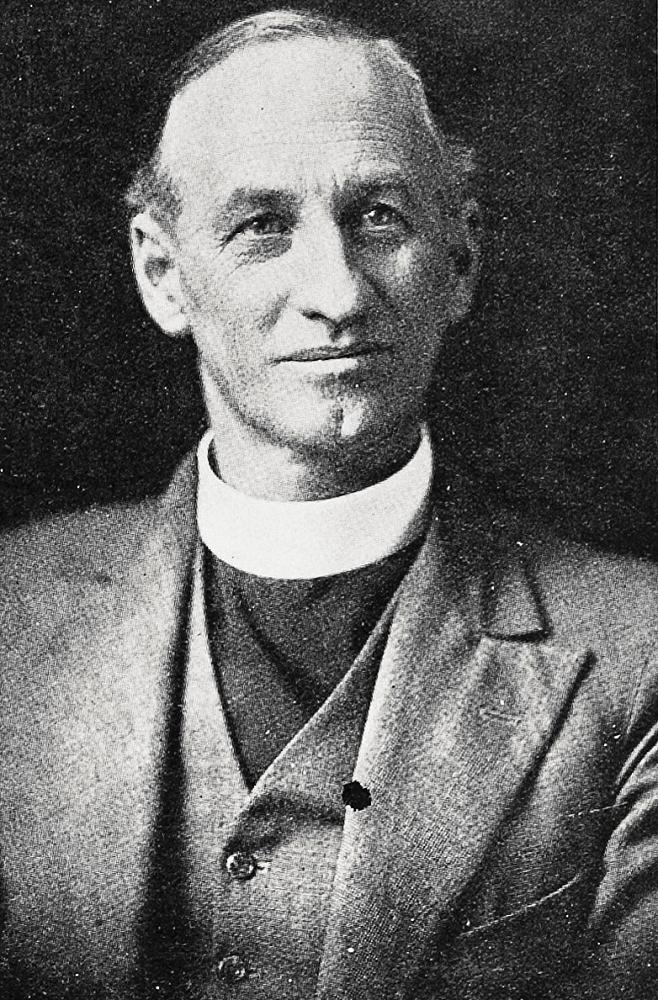
Your Worship
Edwin Thomas Cox 1881 – 1967
Do we still address our mayors as “Your Worship”? If so, why? One source tells me that we do so because ‘citizens give or attribute special worth or esteem (worthship) to their first-citizen or mayor.’ I remember, as a boy, hearing my minister address the Mayor of Wellington as ‘Mr Mayor’, and thinking that was a bit too familiar. But, then, my minister was a man of principle and would have thought of ‘worship’ in a very different way. I now, of course, am of his mind. Is the title still justified – or relevant?
This month’s subject came to my attention while reading the leading article in the New Zealand Methodist Times for May 1923. It was all about the recent civic elections around New Zealand, and how successful Methodist mayoral candidates had been. James Henry Gunson, CMG, MBE, a regular Epsom Methodist, often elected unopposed, was Mayor of Auckland for his fifth term. Christchurch elected J.A. Flesher as its Mayor. He was the first Connexional Legal Advisor, and largely compiled our first Law Book in 1916. Mr J. Gamble was the Mayor of New Brighton; Mr W.A. Rouse was the Mayor of Rangiora; James Fow was the Mayor of Hamilton, a role he filled for a total of 18 years between 1916 and 1938; W.A. Strand was the Mayor of Petone. None of these was a minister of course – to stand for election would have necessitated their resigning from the ministry. But in Kaiapoi, nevertheless, Bramwell Scott, the local Methodist minister stood successfully for a seat on the local Borough Council. The Church newspaper proudly expected these good church-going Methodists to make a significant contribution to their communities.
In those days party politics (in the sense of national political parties) did not feature in local politics. It was not until the rise of Labour in the late 1920s as a force to be reckoned with that the atmosphere of local body elections changed. One senses that this ambivalence is still present in the minds of electors in country areas and the larger cities – ‘Do we need parties’! For one Methodist minister that was an important issue, and he was a successful mayoral candidate in the 1930s for that very reason. His name was Edwin Thomas Cox – born into a farming family in Marton in 1881.
He was ‘converted’ in 1898 and began local preaching in Opunake. Educated at both Auckland and Victoria Universities he was awarded an M.A. with First Class Honours in 1915. He had been a Home Missionary in North Auckland; trained at the Theological Institution 1905-1908; served his probation in Auckland and Christchurch; and was stationed at Westport, Auckland (six years at the Central Mission), Gisborne, Whanganui, and finally at Mornington, Dunedin from 1932. The Depression years were taking their toll, and here was a man in his prime, with a good mind, and with significant experience of inner-city life.
He stood as an Independent in 1933, financing his own campaign, but was on the Labour Party ticket in 1935. In the same year, he unsuccessfully contested the Balclutha seat in the General Election. Cox’s programme in 1935 was described by one critic as ‘municipal sovietism’ – assisting the unemployed, improving working conditions for council employees, relief work in the form of construction projects, and adequate housing. He could not implement all his projects however and failed in his bid for a third term in 1938 (something that had never happened in Dunedin). The ODT and the Citizens Association claimed he lacked judgment and dignity – maybe he didn’t insist on being called “Your Worship” – and his party affiliation was not to his advantage on this occasion.
Officially Cox was ‘without pastoral charge’ as the 1935 Conference Minutes noted. The occasional newspaper references to his ministerial position suggest that his political activities were not generally acceptable to his congregation. He enjoyed the unusual distinction of being the Mayor when the 1935 Conference was held in Dunedin. He welcomed them, officially, and the then President publicly complimented him on his municipal activities. Because he was not paid a stipend he worked as a land agent from 1935-1939, and formally and voluntarily resigned from the ministry in June 1938. He and his wife, Winifred Mary Hudson, moved to Adelaide, where he died in 1967.
Leslie Neale, the minister at the Dunedin Central Mission at that time, and Cox’s contemporary described him as bringing a ‘thoughtful and trained mind’ to his office. He might well have been ambitious, but it was for others rather than himself. In 2023 there is the same need for the Gospel to be worked out in the world of local government as there was 100 years ago.
